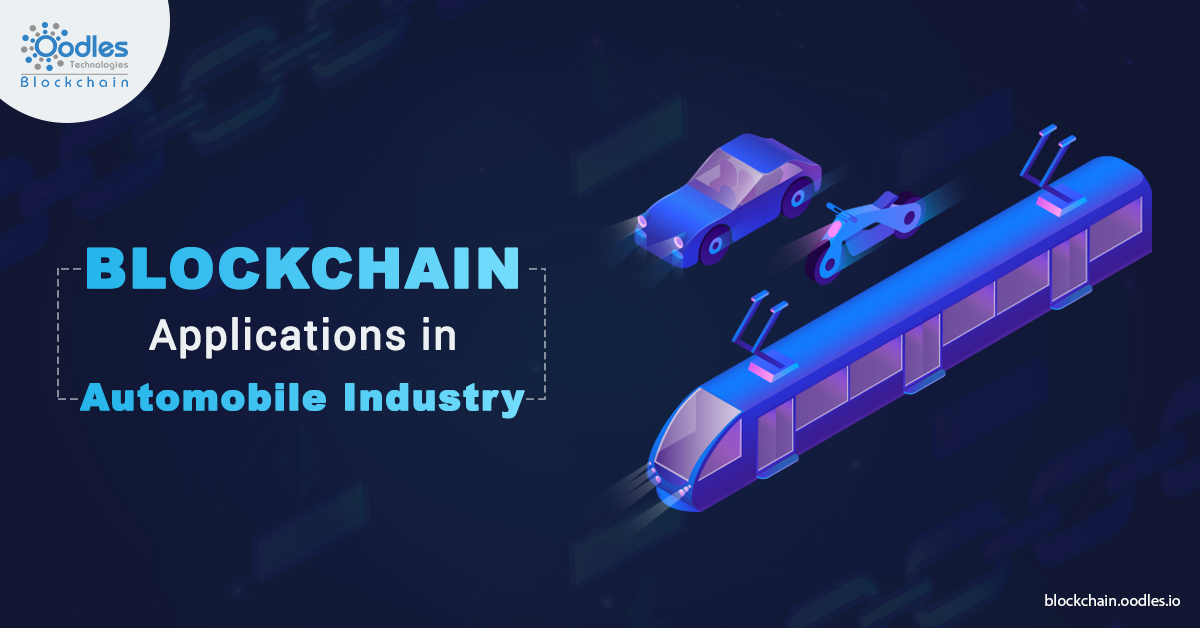-
While the blockchain has been more a matter of hype than at-scale applications, the technology has for sure experienced rapid development in the last few years.
Developing blockchain automotive solutions not only offers vehicle manufacturers numerous advantages but also enables other departments within the automotive ecosystem to utilize its potential. The technology can bring self-driven cars into the mainstream. It also can connect efficient commercialization of the developing automotive industry and bring transparency and trust between sellers and buyers.
Use Cases and Applications of Blockchain in Automotive
Tracking and Provenance
What sets most automotive companies apart is the customer's trust in the quality of their products and the brand. By developing blockchain applications for automotive, companies can have a digital ledger to track each product's development process, such as the source of raw materials, their maintenance history, how and where the product got manufactured, and much more.
Similarly, each component of the product, including production data and design quality, can be easily tracked using blockchain technology-based automotive solutions.
Not only this but also the authenticity, purchase history, provenance, trading, and licensing can all be protected using blockchain. It will allow multiple supply chain partners to corroborate the quality of being authentic of their products.
Also Read: How Blockchain Technology Could Refuel The Automotive Industry
Insurance, Leasing, and Other Services
If we want our vehicles to become 'smart,' all services and their underlying business frameworks need to be reworked as a whole using blockchain.
As all transactions happening on the blockchain are safely recorded and verified, the future of car leasing and insurance can be changed to enhance.
In a nutshell, insuring a vehicle can be turned into a more on-demand and dynamic process. Future insurance policies would work according to the real-time vehicle data provided. With smart contract development, a vehicle would have its insurance policy written and executed on blockchain only.
Likewise, a leased vehicle would manage all contractual transaction requisites using smart contracts applied to it.
Consequently, monthly leasing payments will be enforced in transportation, and upon payments fail, these would automatically decline the service.
Also, Read | How the Automotive Industry is Getting into the Metaverse?
Supply Chain and Business Processes
To manage the manufacturing process, the automotive sector uses many ERP and operational systems.
These systems communicate with numerous other systems downstream and work on several data feeds to execute their actions.
Eventually, it ends in bloating the size of the IT team that conciliates between these various systems thus, increasing complexity in the IT landscape.
Blockchain applications for automotive address this situation by reducing the risk of two or more systems using outdated or contradicting information by applying the method of a single source of information, in real-time. It also diminishes the need to have alternative systems required to reconcile any inconsistencies between systems.
Subsequently, systems and people can work more efficiently and, therefore, act faster with more confidence.
Also, Read | Drive Your Automotive Business Ahead with Blockchain Solutions
Conclusion
Blockchain applications for the automotive Industry can significantly streamline its cumbersome and complex processes. It can alleviate the need for compliance and regulatory approvals.
However, it's the CIOs, CFOs, and CTOs who have to make a strong business use case for implementing blockchain applications in the automotive arena.
The technology is ready to prepare vehicles for an upcoming advanced future where they would interact with it in many different ways.Connect with our skilled blockchain developers to plan, strategize, and launch your unique blockchain-based automotive initiative.

Our Offices
INDIA
Emaar Digital Greens, Sector 61,
Gurugram, Haryana
122011.
Welldone Tech Park,
Sector 48, Sohna road,
Gurugram, Haryana
122018.














